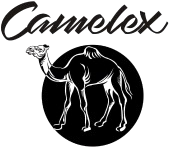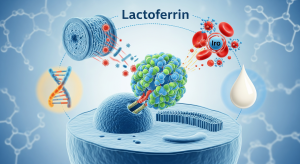Camel Milk and Cancer: A Potential Alternative Medicine?
Camel milk has been gaining attention for its potential anticancer properties. While it is not a standalone cure for cancer, some studies suggest that certain components within camel milk, such as lactoferrin and immunoglobulins, may exhibit antiproliferative effects on various cancer cell lines.
Lactoferrin: A Key Player in Camel Milk’s Anticancer Potential
Lactoferrin, an iron-binding protein, has been shown to induce apoptosis (programmed cell death) in cancer cells. Additionally, camel milk contains immunoglobulins and other bioactive compounds that may contribute to its anticancer potential.
Ongoing Research and Future Directions
However, it is important to note that research on camel milk and cancer is still ongoing, and more studies are needed to fully understand its mechanisms and clinical implications.
Other Alternative Medicines for Cancer
In addition to camel milk, there are a number of other alternative medicines that have been explored for their potential anticancer properties. These include:
- Chemotherapy: Chemotherapy is a type of cancer treatment that uses drugs to kill cancer cells. Chemotherapy drugs can be given in a variety of ways, including by mouth, injection, or infusion. Chemotherapy can be used to treat many different types of cancer, and it is often used in combination with other treatments, such as surgery and radiation therapy.
- Radiation therapy: Radiation therapy uses high-energy rays to kill cancer cells. Radiation therapy can be used to treat many different types of cancer, and it is often used in combination with other treatments, such as surgery and chemotherapy.
- Surgery: Surgery is a common treatment for cancer. Surgery can be used to remove the tumour, as well as any nearby lymph nodes that may contain cancer cells. Surgery can also be used to relieve symptoms of cancer, such as pain or bleeding.
- Immunotherapy: Immunotherapy is a type of cancer treatment that helps your immune system fight cancer. Immunotherapy drugs can help your immune system recognize and attack cancer cells. Immunotherapy can be used to treat many different types of cancer, and it is often used in combination with other treatments, such as chemotherapy and radiation therapy.
- Hormone therapy: Hormone therapy is a type of cancer treatment that uses hormones to stop the growth of cancer cells. Hormone therapy can be used to treat many different types of cancer, including breast cancer and prostate cancer.
- Stem cell transplantation: Stem cell transplantation is a type of cancer treatment that replaces damaged bone marrow with healthy bone marrow. Stem cell transplantation can be used to treat many different types of cancer, including leukaemia and lymphoma.
Here are some references on Camel milk and cancer:
- Anticancer Activity of Camel Milk via Induction of Autophagic
- Anticancer Activity of Camel Milk via Induction of Autophagic [invalid URL removed].): Lyophilized camel milk has been shown to inhibit growth and proliferation of many cancer cell types such as human breast cancer BT-474, laryngeal HE-p2 (Hasson et al., 2015), human hepatoma HepG2 (Korashy et al., 2012b) and murine hepatoma Hepa 1c1c7 cells (Korashy et al., 2012a).
- Impact of camel milk lactoferrin peptides against breast cancer cells: in silico and in vitro study – Frontiers
- Impact of camel milk lactoferrin peptides against breast cancer cells: in silico and in vitro study – Frontiers: Results: The selectivity index (SI) of PEP66 (3.19) suggested lower toxicity to normal cells compared to cancer cells, reinforcing its therapeutic potential.
- Impact of camel milk lactoferrin peptides against breast cancer cells: in silico and in vitro study – Frontiers
- Impact of camel milk lactoferrin peptides against breast cancer cells: in silico and in vitro study – Frontiers: Results: The selectivity index (SI) of PEP66 (3.19) suggested lower toxicity to normal cells compared to cancer cells, reinforcing its therapeutic potential.
Glossary
- Anticancer – relating to or denoting any substance or treatment that inhibits the growth or development of a tumor.
- Apoptosis – the process of programmed cell death that occurs in multicellular organisms.
- Autophagy – a natural, regulated mechanism for the degradation and recycling of cellular components.
- Bioactive compounds – chemical compounds that produce a biological effect.
- Cancer – a disease caused by an uncontrolled division of abnormal cells in a part of the body.
- Chemotherapy – the treatment of disease1 by the use of chemical substances, especially the treatment of cancer by cytotoxic2 drugs.
- Cytotoxic – toxic to living cells.
- Hormone therapy – a type of cancer treatment that uses hormones to stop the growth of cancer cells.
- Immunoglobulin – any of a class of proteins present in the serum and cells of the immune system, that function as antibodies.3
- Immunotherapy – the treatment or prevention of disease by inducing, enhancing, or suppressing an immune response.
- In vitro – performed or taking place in a test tube, culture dish, or elsewhere outside a living organism.
- In vivo – performed or taking place in a living organism.4
- Lactoferrin – an iron-binding protein found in most body fluids, especially milk.
- Lyophilized – freeze-dried.
- Proliferation – rapid growth and multiplication of cells.
- Radiation therapy – the treatment of disease by means of radiation, especially cancer.
- Stem cell transplantation – a medical procedure that restores blood-forming stem cells in people who have had their bone marrow destroyed by high doses of chemotherapy or radiation therapy.





